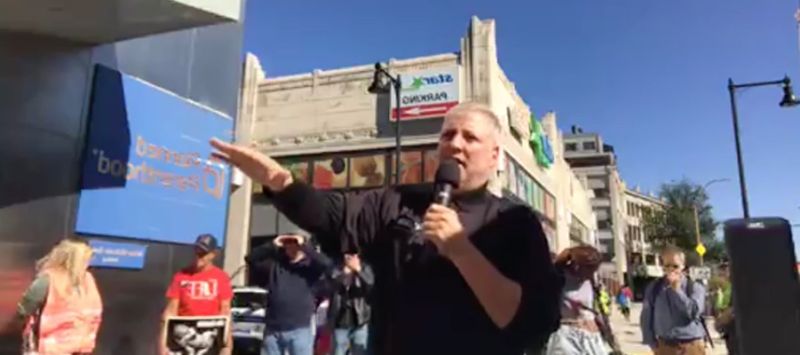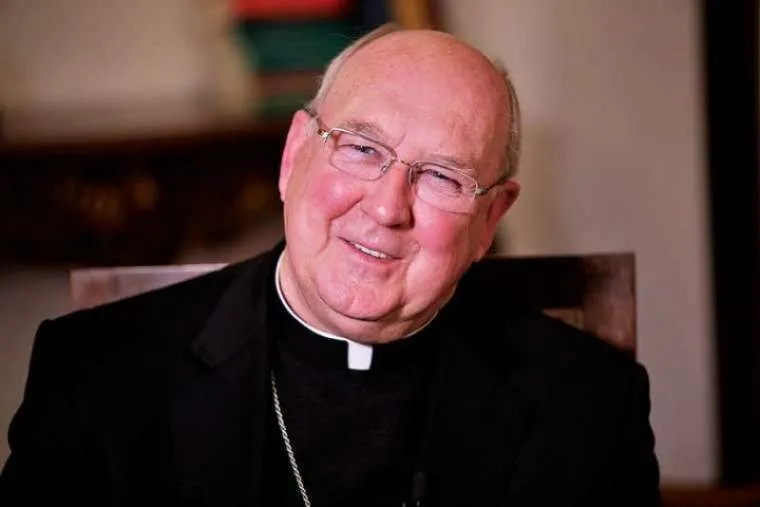 Mark Houck gives a speech at the Men’s March in Boston on Oct. 15, 2022. / Credit: Screenshot of Facebook Livestream “My Mother Mary”
Mark Houck gives a speech at the Men’s March in Boston on Oct. 15, 2022. / Credit: Screenshot of Facebook Livestream “My Mother Mary”
Philadelphia, Pa., Jan 27, 2023 / 17:48 pm (CNA).
The jury deciding the fate of pro-life activist Mark Houck could not come to a decision Friday on whether the Catholic father of seven broke a federal law in a shoving incident outside a Philadelphia abortion clinic in 2021.
U.S. District Judge Gerald Pappert entered the courtroom around 5 p.m., almost two and a half hours after he sent the jury out for deliberation, and said that he received a note from the foreman that said, “Your honor at this point we are deadlocked. How long should we continue to deliberate?”
Pappert called the jury in and asked the foreman if he thought, with more time, the jury could come to a decision.
The foreman said no, but Pappert sent the jury home with instructions to return to court and resume their deliberations Monday morning.
Houck, 48, is charged with two counts of violating the Freedom of Access to Clinic Entrances Act, better known as the FACE Act.
The allegations in the case relate to two incidents that occurred at a Philadelphia abortion clinic on Oct. 13, 2021. The federal indictment alleges that Houck twice shoved an abortion clinic escort, Bruce Love, once when Love was attempting to escort clients and again during a verbal altercation with Love in front of the clinic.
The FACE Act prohibits “violent, threatening, damaging, and obstructive conduct intended to injure, intimidate, or interfere with the right to seek, obtain, or provide reproductive health services.”
The charges are being fought by Houck, who pleaded not guilty to the federal charges several months ago, in U.S. District Court of the Eastern District of Pennsylvania.
The trial began on Tuesday. However, opening statements and witnesses were not called until Wednesday and Thursday. Since then, both sides have had the opportunity to make their case with witnesses, evidence, and closing arguments.
On Friday in court, the jury got to hear from Mark Houck — sometimes referred to as Mark Sr. — and his son, Mark Houck Jr.
On the stand, the elder Houck said he told Love to “Stay away from my son” and “Don’t come near us,” as Love approached them on the sidewalk after the first incident already occurred that day, and Love was again approaching them.
The facts of the first incident are disputed by both sides. Both sides agree that Houck was sidewalk counseling two women crossing the street who left Planned Parenthood. Both sides agree that Love followed them.
But that’s where the accounts diverge. The prosecution says that Houck elbowed Love because he was a clinic escort. Houck says that Love startled him, and even made contact with him, causing him to say “What are you doing?” and hip-check him out of reflex.
Following the first incident, Houck said Love left the clinic, placed himself next to Houck’s son, and was jeering at Houck Sr.: “You’re hurting women. You don’t care about women.”
Houck then said that the same things were said about him to his son.
Houck’s son, who took the witness stand first and was 12 at the time of the incident, made the same claims about Love’s words.
The younger Houck said Love came and stood next to him about an arm’s length away on the wall of the clinic near the corner where they were praying and sidewalk counseling.
“I moved away… because I was scared,” he said.
The younger Houck testified that Love said to him “Your dad’s a bad person. Your dad’s harassing women.”
The boy said it was “unusual” that Love went “that far from the clinic” to escort the women, referring to the site of the first incident, when his father was counseling two women crossing the street.
Houck’s attorney, Brian McMonagle, asked the younger Houck if he prepared his testimony with his father’s lawyers. When the boy said he had, McMonagle asked him what the lawyers told him to tell the jury.
“The truth,” he said.
[…]






Putting McCarrick’s former Auxiliary Bishop in charge of Vatican finances shows that Francis is neither serious about sexual abuse coverups nor about financial transparency.